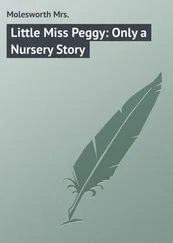Mrs. Molesworth - Blanche - A Story for Girls
Здесь есть возможность читать онлайн «Mrs. Molesworth - Blanche - A Story for Girls» — ознакомительный отрывок электронной книги совершенно бесплатно, а после прочтения отрывка купить полную версию. В некоторых случаях можно слушать аудио, скачать через торрент в формате fb2 и присутствует краткое содержание. Жанр: foreign_prose, foreign_children, на английском языке. Описание произведения, (предисловие) а так же отзывы посетителей доступны на портале библиотеки ЛибКат.
- Название:Blanche: A Story for Girls
- Автор:
- Жанр:
- Год:неизвестен
- ISBN:нет данных
- Рейтинг книги:3 / 5. Голосов: 1
-
Избранное:Добавить в избранное
- Отзывы:
-
Ваша оценка:
- 60
- 1
- 2
- 3
- 4
- 5
Blanche: A Story for Girls: краткое содержание, описание и аннотация
Предлагаем к чтению аннотацию, описание, краткое содержание или предисловие (зависит от того, что написал сам автор книги «Blanche: A Story for Girls»). Если вы не нашли необходимую информацию о книге — напишите в комментариях, мы постараемся отыскать её.
Blanche: A Story for Girls — читать онлайн ознакомительный отрывок
Ниже представлен текст книги, разбитый по страницам. Система сохранения места последней прочитанной страницы, позволяет с удобством читать онлайн бесплатно книгу «Blanche: A Story for Girls», без необходимости каждый раз заново искать на чём Вы остановились. Поставьте закладку, и сможете в любой момент перейти на страницу, на которой закончили чтение.
Интервал:
Закладка:
“The late owner,” repeated Mrs Derwent. “Is he dead, then? Has the house been long uninhabited?”
“Only since last spring. Mr Bartleman scarce lived in it himself. He found the winters too cold. Then it was let to Major Frederic, and he and his family lived here five years, till the young gentlemen had finished their schooling. There were several after it in the summer, but they mostly objected to the distance from the school.”
“But how is it, then, that the villas are all let?” asked Blanche. “At least, I suppose they are.”
“They’re not let, Miss. They’re mostly lived in by their owners – parties from the town, who have moved out, finding they could get a good rent for their houses near the school. There’s Mr Belton, the principal draper at Blissmore, lives next door; and Mr Wandle, junior partner in Luckworth and Wandle’s brewery. The neighbours are highly respectable.”
Mrs Derwent did not speak. Stasy was smothering a laugh. Blanche led the way into the rooms opening on to the hall.
They were nice – decidedly tempting, though not large. But they were depressingly out of repair. The Frederic schoolboys had evidently bestowed upon the house more than the legitimate “wear and tear” during their five years’ occupancy. The drawing-room, especially, was scarcely deserving of the name: it looked as if it had been a playroom pur et simple . The attentive clerk was ready with his explanations.
“Major Frederic never furnished this room,” he said. “It was kept empty for the young gentlemen.”
“It might be a very pretty room,” said Blanche, “but it needs everything doing to it.”
The dining-room, though it had been furnished and used in a nominally orthodox way, was in not much better case. Still, a dining-room never, to ladies especially, seems such a serious matter. The library was the best-cared-for room, and it opened into a small boudoir or study, which was really charming. There were great capabilities about the house, though hitherto these had but scantily been made available. Up-stairs it was brighter. There was a sufficient number of rooms, though everywhere the same story of needful repair and embellishment.
Outside, to somewhat inexperienced eyes, it looked in fair order, for it needs the full luxuriance of summer vegetation to show how, in a neglected or semi-neglected garden, the weeds grow apace with or outrun the orthodox inhabitants of the soil.
The clerk was very patient. The minute attention bestowed by the visitors upon the little place seemed to him to savour of hope, and it was in his own interests, poor fellow, to secure a “let,” as it would increase his chances of promotion in the office. But at last Mrs Derwent and her daughters seemed satisfied.
“We shall miss our train to London,” said the former, “if we stay any longer; for I must see Mr Otterson on our way through the town.”
So saying, she led the way out, turning, as she stepped on to the drive, to give a last look at the house, with already a slight sense of prospective proprietorship. But she said nothing, and the two girls were quick-witted enough to follow her lead.
The flyman, for reasons best known to himself, had seen fit to drive out into the road again, and was waiting, more than half asleep, at the gate.
Blanche glanced round, and an idea struck her.
“Mamma,” she said, “if you are not tired, might we walk on a little way? I should like to have some idea of the neighbourhood, and to look in at the church for a moment.”
“Certainly,” said Mrs Derwent; “it cannot make five minutes’ difference. And, after all, even if it did, we could wait for a later train.”
“You won’t find the church open, madam, I’m afraid,” said the clerk. “But you might like to walk round it. From the other side there’s a nice view, Alderwood way. On a clear day you can see right across. And at the other end of the lane there’s one of the lodges of East Moddersham, Sir Conway Marth’s place – one of the places. You can see it any Thursday. The avenue is half a mile long by this approach.”
Chapter Five
The Girl with the Happy Face
As Derwent did not seem to feel any very lively interest in East Moddersham, and proud little Stasy reared her head at the very idea of going to see a show, like tourists, when, of course, they would there as guests!
But the mention of Alderwood had a different effect.
“Alderwood,” repeated Stasy’s mother, ignoring the young man’s last words. “Do you mean Sir Adam Nigel’s place? Why, it is quite at the other side of Blissmore, unless there are two Alderwoods. But that could scarcely be.”
“Sir Adam Nigel,” repeated the clerk in his turn, shaking his head. “I don’t recollect the name. Alderwood is the residence of Mrs Lilford – that’s to say, it is her property, but it has been let on a long lease to Lady Harriot Dunstan.”
“Ah,” said Mrs Derwent, turning to her daughters, “that explains it, then. Poor Sir Adam must be dead, for Mrs Lilford is a niece of his, a favourite niece, his brother’s only child. I am surprised at her letting a family place like that; and yet it must be the same. Only I can’t understand its being at this side of Blissmore.”
“It is three or four miles off, quite the other way,” said the young man, “but there is a view of it from this. It stands high, and I believe there is a short cut to it across the fields, skirting the town.”
“I see,” said Mrs Derwent consideringly. “Then you have never heard Sir Adam Nigel’s name? Perhaps you are not a native of the place, however.”
“No; I come from Yorkshire,” replied he. “I have only been down here a few months.”
“Ah; that explains it,” the lady said again.
They strolled round the church, and gazed over to where they were told Alderwood should be seen, if it were clearer. But a slight mist was already rising, and there was a mist over the older woman’s eyes too.
“Alderwood was close to my old home, you know,” she whispered to Blanche.
Then they walked round the green and down the short bit of lane separating it from the high-road, the clerk staying behind to tell the flyman to follow them.
“How does it all strike you, Blanchie dear?” said Mrs Derwent, with some anxiety in her tone.
“I like the house very much indeed,” the girl replied. “It might be made very nice. Would all that cost too much, mamma?”
“We must see,” Mrs Derwent replied. “But the place – the green, and all these other new houses. What do you think of the neighbourhood, in short?”
“They are pretty, bright little houses,” said Blanche, not fully understanding her mother’s drift. “But I think, on the whole, I like the old-fashionedness of – ”
“Of our house?” Stasy interrupted, clearly showing how the wind was setting in her direction.
Blanche smiled.
“Of our house, best,” she concluded.
“Yes, oh yes, most decidedly,” agreed Mrs Derwent. “But that was not exactly what I meant. I was wondering if the close neighbourhood of this sort of little colony may not be objectionable in any way.”
“I scarcely see how,” Blanche replied. “Of course, they are not the sort of people we should know ; but still, these other houses make it less practically lonely. And once you look up all your friends, we shall be quite independent, you see, mamma.”
“Of course,” said Mrs Derwent, and she was going on to say more, when at that moment the sound of a horse or horses’ feet approaching them rapidly, made her stop short and look round.
They were just at the end of the lane. A few yards higher up the road, on the opposite side, large gates, and the vague outline of a small house standing at one side of them, were visible. This was the entrance to the great house – East Moddersham – of which the clerk had spoken with bated breath. The sounds were coming towards where the Derwents stood, from the direction of the town, so, though they naturally turned to look, they in no way associated them with the near neighbourhood of the East Moddersham lodge.
Читать дальшеИнтервал:
Закладка:
Похожие книги на «Blanche: A Story for Girls»
Представляем Вашему вниманию похожие книги на «Blanche: A Story for Girls» списком для выбора. Мы отобрали схожую по названию и смыслу литературу в надежде предоставить читателям больше вариантов отыскать новые, интересные, ещё непрочитанные произведения.
Обсуждение, отзывы о книге «Blanche: A Story for Girls» и просто собственные мнения читателей. Оставьте ваши комментарии, напишите, что Вы думаете о произведении, его смысле или главных героях. Укажите что конкретно понравилось, а что нет, и почему Вы так считаете.












